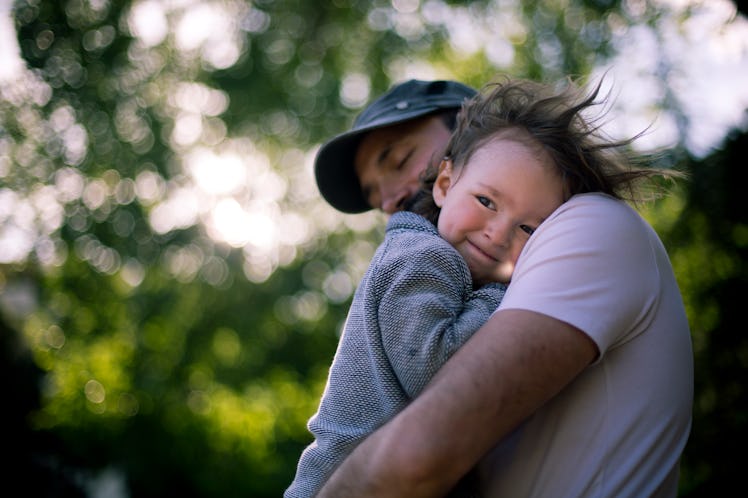Parents Who Raise Humble Kids Do These 5 Things
You’ll have to walk the walk.

Those who are humble aren’t pushovers or unwilling to express their opinions or unable to discuss their success. Rather, they understand themselves and their value without needing to flaunt it. They know that pride is not the same as self-confidence. They’re thankful for what they have. They’re self-aware and understand what they can contribute. Parents who intentionally raise humble kids are raising children who are often less prone to stress and able to maintain great friendships.
“In the end, humility about being a good person,” says John Duffy, Psy.D., a clinical psychologist and author of Parenting the New Teen in the Time of Anxiety. “People who think of the needs of others as often as they think of their own needs.”
So how can parents actively raise humble children? Here, per Duffy, are five things parents who raise humble children do.
Model Humility
This sounds obvious, sure. But there is no way for parents to effectively teach kids how to be humble without modeling humility themselves. Paradoxically, in order for parents to model humility, they must also be confident.
“Humility and confidence run together. A lack of confidence brings a lack of humility and then brings arrogance or narcissism,” Duffy says. “As parents, we want to show our kids humility in the way we live our day-to-day lives. If we preach one thing and do something different, our kids will pick up on the dissonance of that.” If parents make a mistake, they should own up to it and apologize.
Get Your Kids Involved in Service
“Whether it’s a job or a volunteer experience, kids automatically, organically, and elegantly teach themselves humility through these experiences,” Duffy says. “Nothing is more profound in its impact on that part of their lives than service. It brings gratitude, and humility, at the same time. Those experiences, way more than a lecture from mom and dad, work.”
For many kids, their first volunteer experience or first job is a profound shift in the way they see the world and perceive their privilege. Even if it’s minimum-wage job at a gas station or a few days working with Meals on Wheels, kids can learn a lot about reaching out and giving help to those who need it, and what it means to ask for help themselves.
Use Media as a Teaching Tool
The good news about teen movies is that they tend to follow the same tropes, Duffy says, and in those moments, the pause button is his favorite tool for teachable moments.
“I love the use of a pause button on TVs,” he says. “Because, if you’re struggling with something, chances are, in any given evening of watching TV, the issue will come up. Humility is certainly among them.”
For example, if, in a TV show, a bully is being mean to another kid in front of a lot of other students, hit the pause button. Then ask: What do you think is happening here? How do you think everyone feels in this scene? Don’t belabor the point. You can move on as soon as your kid answers the question and press ‘play.’ But it’s a good moment to teach a lesson.
Talk About Current Events
Duffy says that parents, regardless of their political persuasion, can bring up moments where public officials act badly and talk to their kids about it. Again, this shouldn’t be a lecture, and can happen in a quick conversation of 10 to 15 minutes or so. Duffy points to one time he was working with a teenage client who brought up that President Trump had made fun of Pete Buttigieg and called him Alfred A. Neuman from Mad Magazine.
“She said she was not happy about that. I asked her what made her unhappy. She said it could hurt the guy’s feelings and that’s not very nice,” Duffy says. “So we just started talking about, do you see that in your life? In your grade? In your high school? That started this conversation that suggests that, ‘I do not want to be that person. I want to be the person that lifts people up, not bring them down. My own humility is going to be what fosters that.’”
Don’t Lecture
All parents tend to monologue. It comes with the gig. But Duffy’s least favorite way of teaching any lessons to kids is by way of a lecture.
“I can’t emphasize enough to the degree to which I loathe lectures,” he says. “Kids are super astute, and lectures fall flat for them. Typically, they know how you feel, and they feel patronized if they are being lectured to.”
Instead, Duffy says to use the tools above regularly. Mention something you saw on television. Talk about something a mean politician did. Don’t sit there and say, “Here’s why you need to be humble.”
“Engage them. Kids disengage from lectures. Kids feel they are being patronized; there is a better, more impactful way to get a message to land with them,” he says.
This article was originally published on